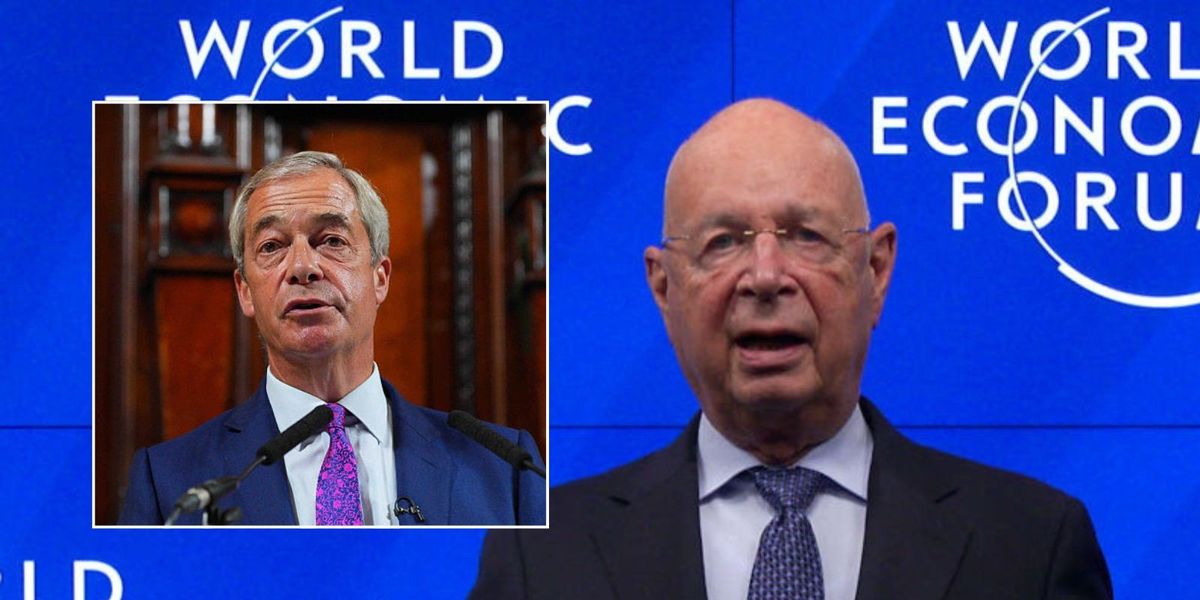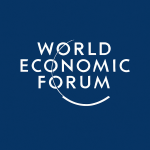Key points
- Sources: The Telegraph: "WEF 'rigged data' to make Brexit look like failure" GB News: "World Economic Forum slammed for 'rigging data' on Brexit"
A series of explosive claims have surfaced alleging that the World Economic Forum (WEF) may have interfered with its own data in 2018 to present a more negative picture of the UK's economic prospects following Brexit.
According to reporting by The Telegraph and GB News, a leaked internal investigation suggests that WEF founder and chairman Klaus Schwab instructed staff to revise the UK’s ranking in its Global Competitiveness Report, reportedly out of concern that a positive assessment could be “exploited by the Brexit camp.”
In early drafts of the 2018 report, the UK was said to have risen from 7th to 4th place in the global competitiveness rankings. However, following alleged internal direction, the UK’s final published ranking was downgraded to 8th. The Telegraph reports that the internal audit noted a “clear divergence” between the underlying data and the published outcome.
Critics have responded sharply to the revelations. Former Brexit negotiator Lord David Frost described the findings as “a stain” on the WEF’s reputation, while Nigel Farage called the alleged intervention “disgraceful.” Richard Tice, leader of Reform UK, claimed the revelations demonstrate a “globalist agenda” at play during the critical years following the Brexit vote.
According to The Telegraph, the internal review highlighted concerns among WEF staff, with some warning that tampering with results could damage the forum’s credibility as a neutral organisation. One cited comment reportedly stated that “the data shows the UK improved,” but that leadership insisted “this cannot be allowed to stand.”
While the WEF has yet to release an official public response addressing the leaked claims, the controversy raises questions about political neutrality within prominent global institutions. The Global Competitiveness Report, published annually, is widely regarded as a benchmark for assessing national economic performance and influences investment decisions, policymaking, and international perception.
Importantly, broader academic and economic consensus in recent years has continued to reflect concerns over Brexit’s long-term impact on the UK economy. Studies from the Office for Budget Responsibility, the London School of Economics, and other independent bodies have pointed to reduced trade, lower investment, and slower growth post-Brexit. However, the current allegations focus not on whether Brexit has been economically damaging, but rather on whether the WEF misrepresented its own 2018 findings to align with a particular narrative.
As of now, no formal statement has been made by the WEF addressing the specific allegations of data suppression. The story is developing, and further responses from involved parties are anticipated.

 www.telegraph.co.uk
www.telegraph.co.uk

 www.gbnews.com
www.gbnews.com

 europeanconservative.com
europeanconservative.com
According to reporting by The Telegraph and GB News, a leaked internal investigation suggests that WEF founder and chairman Klaus Schwab instructed staff to revise the UK’s ranking in its Global Competitiveness Report, reportedly out of concern that a positive assessment could be “exploited by the Brexit camp.”
In early drafts of the 2018 report, the UK was said to have risen from 7th to 4th place in the global competitiveness rankings. However, following alleged internal direction, the UK’s final published ranking was downgraded to 8th. The Telegraph reports that the internal audit noted a “clear divergence” between the underlying data and the published outcome.
Critics have responded sharply to the revelations. Former Brexit negotiator Lord David Frost described the findings as “a stain” on the WEF’s reputation, while Nigel Farage called the alleged intervention “disgraceful.” Richard Tice, leader of Reform UK, claimed the revelations demonstrate a “globalist agenda” at play during the critical years following the Brexit vote.
According to The Telegraph, the internal review highlighted concerns among WEF staff, with some warning that tampering with results could damage the forum’s credibility as a neutral organisation. One cited comment reportedly stated that “the data shows the UK improved,” but that leadership insisted “this cannot be allowed to stand.”
While the WEF has yet to release an official public response addressing the leaked claims, the controversy raises questions about political neutrality within prominent global institutions. The Global Competitiveness Report, published annually, is widely regarded as a benchmark for assessing national economic performance and influences investment decisions, policymaking, and international perception.
Importantly, broader academic and economic consensus in recent years has continued to reflect concerns over Brexit’s long-term impact on the UK economy. Studies from the Office for Budget Responsibility, the London School of Economics, and other independent bodies have pointed to reduced trade, lower investment, and slower growth post-Brexit. However, the current allegations focus not on whether Brexit has been economically damaging, but rather on whether the WEF misrepresented its own 2018 findings to align with a particular narrative.
As of now, no formal statement has been made by the WEF addressing the specific allegations of data suppression. The story is developing, and further responses from involved parties are anticipated.

World Economic Forum ‘rigged data’ to make Brexit look like failure
Davos conference founder allegedly intervened to lower UK productivity ranking

World Economic Forum slammed for 'rigging data' to make Brexit look like a failure
Davos founder allegedly intervened to boost India’s ranking and keep UK down
 www.gbnews.com
www.gbnews.com

World Economic Forum Accused of Rigging Rankings to Undermine Brexit
Allegations have surfaced that the WEF manipulated global rankings to discredit Brexit—fueling fresh outrage over elite interference in democratic processes.



